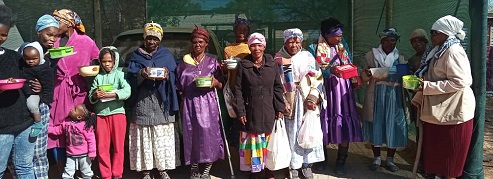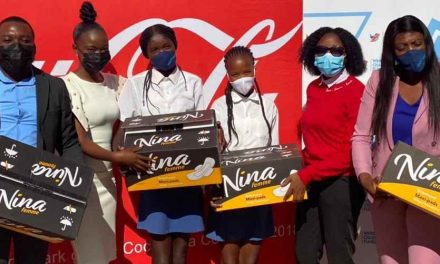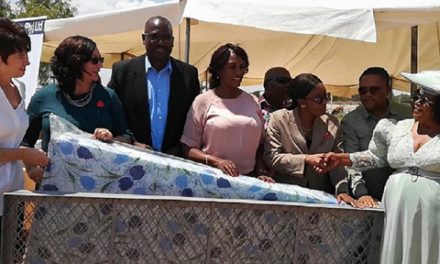
Capricorn Foundation plays a positive role in the reduction of food waste

The Capricorn Foundation recently contributed N$100,000 to procure 10 tons of butternut from the Mariental Horticulture Pilot Project and transported it to 10 regions and 80 organisations.
The government and Namibian Correctional Service (NCS), in partnership with the United Nation’s World Food Program (WFP), IFARMS, and the Lithon Group, pioneered the pilot development of a horticultural production site in Mariental in 2022.
This Mariental Horticulture Pilot Project has surpassed expectations and produced 43 tons of butternut and pumpkin to support healthy and nutritious diets and address rural transformation, food production, offender skill development, social cohesion, and environmental rehabilitation.
The Namibian Correctional Services in Mariental received 10 tons of the butternut and pumpkin and the remainder (33 tons) was sent to Windhoek.
The WFP sent 13 tons to communities in the Omaheke, Kunene, and Oshikoto regions and approached the Capricorn Foundation to partner with them in making sure that the remainder of the butternuts and pumpkins in storage, reach vulnerable communities and do not go to waste.
The Capricorn Foundation, as part of its commitment to address food insecurity through the reduction of food waste, bought 10 tons of butternut valued at N$100,000.
This week, the Capricorn Foundation distributed 2.7 tons of butternut to vulnerable orphans and communities experiencing food insecurity and malnutrition, identified by the Foundation through the help of their CSR partner, Imago Dei. The Lithon Foundation, another Capricorn Foundation partner and project partner of the WFP, coordinated the distribution of the rest of the Foundation’s butternuts (just over 7 tons) countrywide to various towns and regions in Namibia, including Karas (Rosh Pinah, Noordoewer, Aussenkher, Keetmanshoop), Hardap (Mariental, Stampriet, Rehoboth, Hoachanas), Omaheke (Gobabis, Talismanus, Donkerhoek), Khomas (Windhoek), Erongo (Rooibank, Walvis Bay, Swakopmund, Henties Bay, Arandis), Otjozondjupa (Okahandja, Otjiwarongo, Otavi, Grootfontein, Osire), Kunene (Opuwo, Okanguati), Oshana (Ongwediva, Ondangwa), Oshikoto (Tsumeb), Kavango (Rundu). The distribution and transport were greatly assisted by Imago Dei, Gondwana (from Rosh Pinah to Opuwo), On Time Couriers (Gobabis), Hardap Couriers (Coast and North), and several individuals – all part of their contribution to the wellbeing of vulnerable people of Namibia.
In the past few months, the Foundation has collaborated with the United Nations World Food Programme (WFP) and hosted a workshop to discuss strategies to transform food systems in Namibia. Recently the Foundation also launched its annual Food Waste Challenge to address the issue of food waste in Namibia.
Marlize Horn, Executive Officer of the Capricorn Foundation, said, they find it crucial to collaborate with like-minded organisations to engage and seek various pathways toward transforming food insecurity in Namibia, and this is another opportunity for us to do so.
“We are proud of our partnership with WFP and the Lithon Foundation in making sure that these butternuts are not wasted and reach the most vulnerable communities across Namibia,” she said.
“Since the founding of Lithon in 2002 there has been a clear vision to make a positive and significant impact in the lives of people, through creating platforms for collaboration and networking with valuable partners like NCS, Capricorn Foundation, and the WFP, and investors believing in our Namibian Dream,” said Marsia Reed, CEO of the Lithon Foundation.
 Recipients of the butternuts enjoy a wholesome meal with butternut.
Recipients of the butternuts enjoy a wholesome meal with butternut.











































